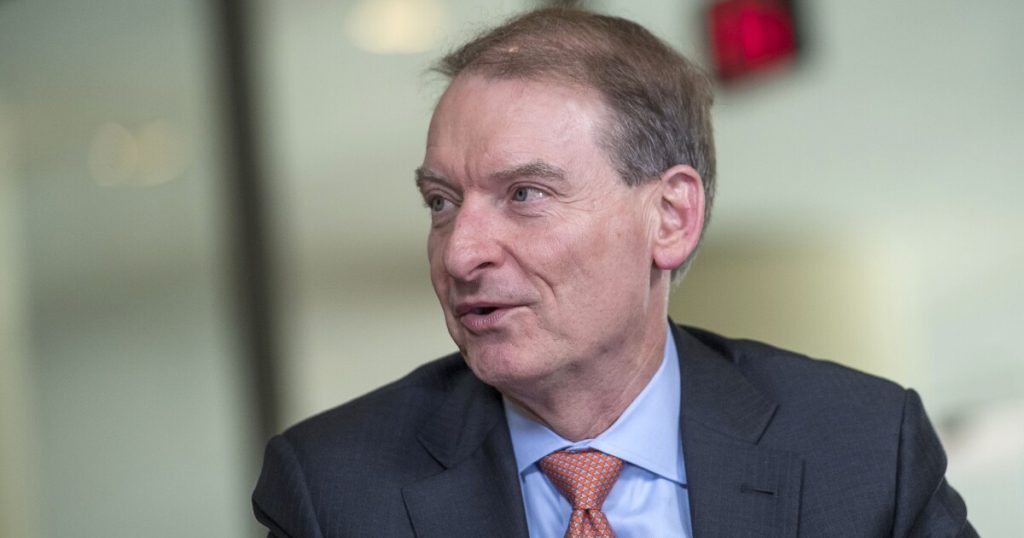President-elect Trump’s nominee for chairman of the Securities and Exchange Commission, Paul Atkins, is a known critic of the Consumer Financial Protection Bureau.
In that role, he could have some influence over housing policy.
The SEC chairman is one of the voting members of the Financial Stability Oversight Council, as is the director of the CFPB. The Council was established as part of
Atkins, who is a former SEC commissioner, was
“Paul is a proven leader for common sense regulations. He believes in the promise of robust, innovative capital markets that are responsive to the needs of Investors, & that provide capital to make our Economy the best in the World,” Trump said in the statement posted on Truth Social on Wednesday
David Paul Morris/Photographer: David Paul Morris/
Atkins is very knowledgeable about housing as well as a broad range of regulatory issues, said Ed Pinto, co-director of the American Enterprise Institute Housing Center, who served with Atkins during the 2016 transition.
“He would bring positive insights into FSOC,” Pinto said. That would be on a broad range of issues, “including housing, because a lot of what happens in financial oversight is related to housing.”
The three largest systemic institutions are the Federal Reserve, Fannie Mae and Freddie Mac. All three are heavily involved with housing, especially the Fed and its balance sheet that includes mortgage-backed securities, Pinto said.
“Housing is in the middle of financial oversight and the crises that we experience regularly,” he continued. Pinto pointed to AEI data on home prices that show the role the Fed played in
“FSOC and the financial regulators and people like the chairman of the SEC have a major role in trying to push back against some of these decisions that are very deleterious to housing and affordability,” Pinto said.
Atkins nomination, said Peter Idziak, senior associate at the law firm of Polunsky Beitel Green, “is another signal that his administration will be staffed by individuals who believe that the federal government is overly aggressive in its regulation of financial markets.
“Ultimately, whoever is selected to lead the CFPB will have a far greater impact on mortgage markets, but Atkins’s selection is more evidence that Trump will likely pick an individual who has been highly critical of the Bureau’s current regulatory agenda,” Idziak continued.
Atkins is also known as an enthusiast of cryptocurrencies and that could spill over into housing finance. “A more industry-friendly approach by the SEC to the regulation of digital assets and fintech companies will likely flow through to the mortgage industry,” Idziak said. “We are likely to see more fintechs offering non-traditional loan products as well as an increased acceptance by lenders of crypto for down payments and as collateral for loans.”
Consumer group Accountable.US panned Atkins’ selection, noting Patomak Global Partners, the company he is currently CEO of lists among its clients’ cryptocurrency companies, banks, and private equity firms.
“President-elect Trump wants a Wall Street insider running the SEC whose business clients are in the same industries he will be asked to regulate and who have brought the most harm to consumers,” said Tony Carrk, executive director of Accountable.US, in a statement. “This is yet another example of Donald Trump nominating someone who will look out for big business and the wealthy at the expense of the middle class and retail investors.”
Sen. Tim Scott, R.-South Carolina currently the ranking member of the Senate’s Committee on Banking, Housing and Urban Affairs said Atkins will prioritize the SEC’s mission versus a partisan political agenda.
“Paul Atkins has the experience necessary to lead the agency out of Gary Gensler’s disastrous tenure and help revitalize the U.S. capital markets system – which is critical to our economic growth, job creation, and innovation,” a statement from Scott said. “I look forward to working with him to increase access to capital for entrepreneurs, open our capital markets to all Americans, and create a regulatory environment for digital assets that encourages innovation here in the United States, not overseas.”

